Congratulations, Class of 2023!
Congratulations to the Class of 2023 on completing your Master of Science in Occupational Therapy degrees! We celebrate your perseverance and dedication, which have led you to this momentous achievement, and we know you will have a great impact on the world as you enter the next chapter as occupational therapists.
Six of our graduating students from our UTM and St. George campuses reflect on two years in the program and what they have planned for the future.
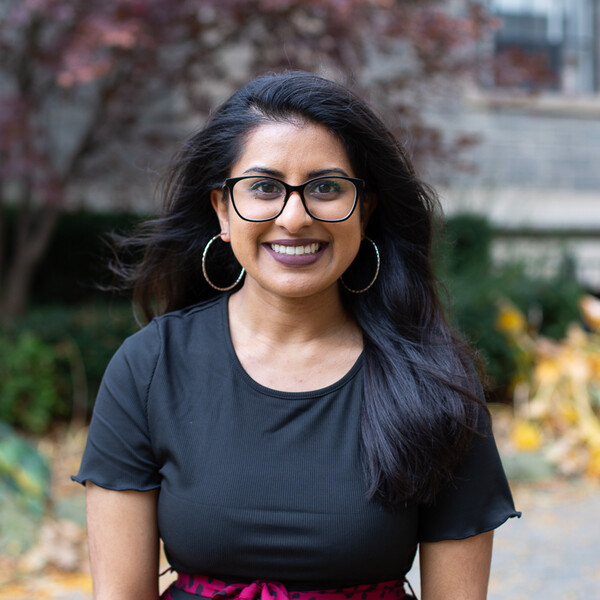
Riya Shah, co-valedictorian, UTSG
Seeing clients go from a vulnerable, guarded state to laughing and engaging in meaningful activities again — that is the true beauty of occupational therapy and it’s what I love about this profession.
In school, I was astounded by the need to collaborate with my interprofessional peers and to learn that occupational therapy can be used in all areas of life. Most importantly, I reflected on the need for more people of colour in the health care community, and I am happy to contribute in a meaningful way through occupational therapy.
I have been inspired by so many occupational therapists, all in different areas of work, and have had opportunities to advocate for the profession and vulnerable communities with the help of my faculty and peers. It has been so inspiring to learn and grow with my peers over the past two years.
I plan on continuing to advocate for my clients and marginalized communities, and engage in a variety of occupational therapy roles, both clinical and non-clinical, to demonstrate the true essence and need for occupational therapy in my community.
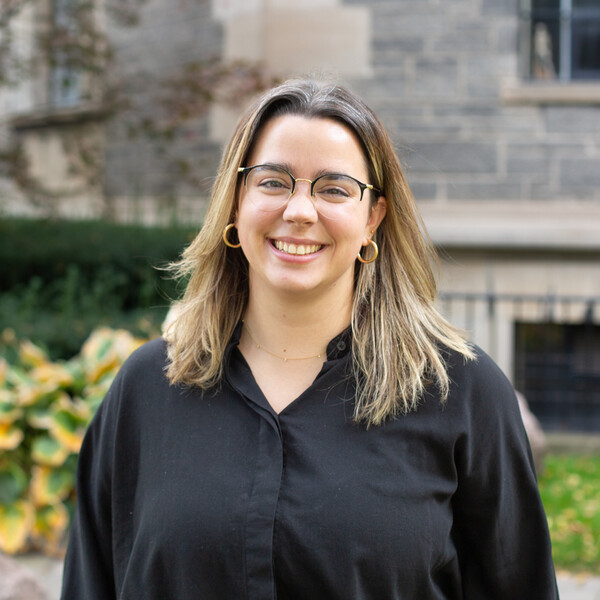
Antonia Bellefleur, co-valedictorian, UTM
I was inspired to pursue occupational therapy because I appreciate the value placed on holistic care and addressing the person factors when providing therapy. Our occupational therapy lens is what makes us unique.
I’ve learned so much these past couple of years. I didn’t know I had ‘spare parts’ — hurray for palmaris longus! I remember nervously preparing for our first initial interview with a mock patient. It’s wonderful to reflect on how far we’ve come since then.
Now that I’ve graduated, I am currently working as an occupational therapist in acute hand therapy at a hospital and am excited to continue my learning in this field.
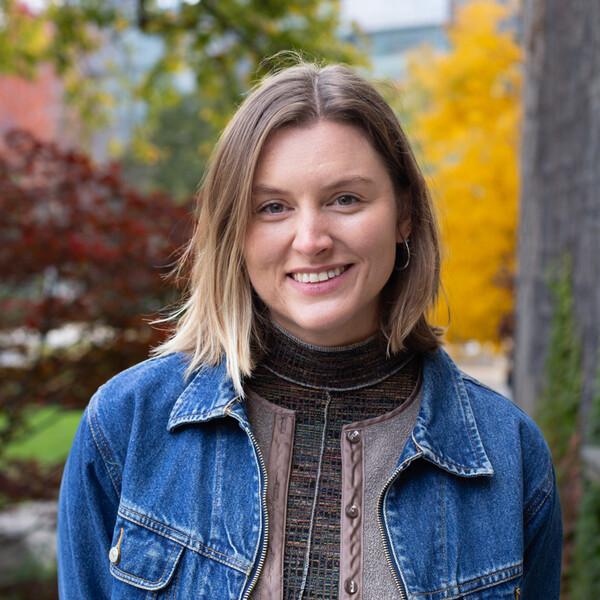
Zoë Avril Smith, UTSG
I was inspired to pursue a career in occupational therapy after working alongside several fantastic occupational therapists at the Centre for Addiction and Mental Health. I loved how their work was so tangible, holistic, and client-centered.
During my time in the program, I was surprised to learn how many settings an occupational therapist can work in and how the number of opportunities continues to grow.
I completed one of my clinical placements at Amar Seva Sangam, a non-profit rehabilitation centre founded and run by people with disabilities in rural South India. My experience here was so memorable and enriching.
Since completing the program, I have taken some time to travel and visit family in Scotland. I’ve recently started looking for a job in mental health. Most of my career has been within the mental health
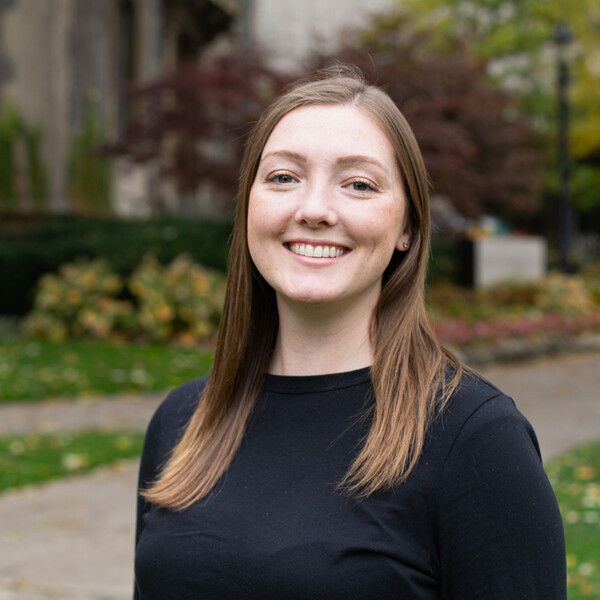
Kaitlyn Wagner, UTM
I was several years into a different career when I learned about occupational therapy and I immediately knew that it was the career for me. I wanted to work with people and use my skills to empower them to do the things they need to and want to do in their daily lives. Since then, I’ve been surprised to learn about how broad the scope of occupational therapy is and how many different settings occupational therapists can work in.
During the past two years, I was extremely fortunate to have a variety of placements including acute stroke, community paediatrics, forensic mental health and a geriatric outpatient clinic, where I had the privilege of meeting many different clients. There is no better feeling than working with a client to help them overcome barriers and reach their goals.
I am currently working for FunctionAbility in the community with clients who have traumatic and acquired neurological injuries and severe orthopaedic injuries. I find this work to be extremely meaningful and I look forward to continuously improving my clinical skills in this role.
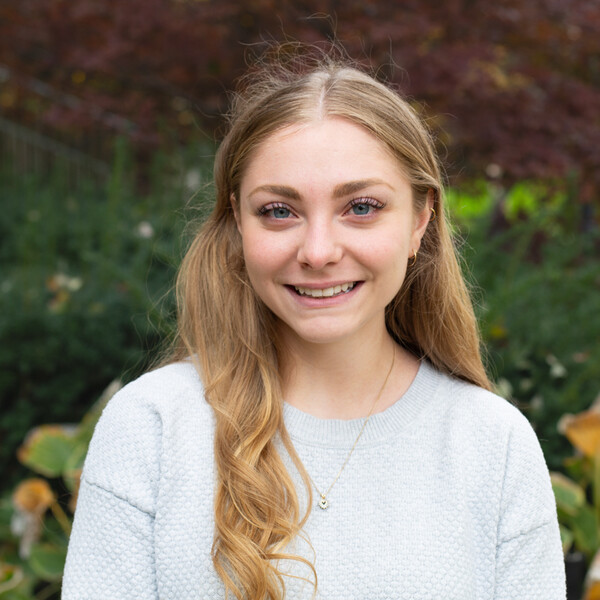
Niki Odorico, UTSG
I was drawn to occupational therapy because it’s multifaceted; addressing the physical, mental, cognitive, emotional and social aspects of people’s lives. I appreciate the diversity within the field and the opportunities to work with people from various backgrounds and age groups.
While occupational therapy is often associated with hospitals and rehabilitation settings, I have learned that occupational therapists are equally well-suited to work with individuals, businesses, and communities to create safe environments that enable people to participate in their meaningful activities.
Some of the most memorable moments in the program have been my fieldwork placements. I worked in the emergency department in a level one trauma hospital, in medicine and oncology inpatient units, in a men’s prison, and in a children’s hospital in Melbourne, Australia. Each of these placements pushed me to apply what I had learned in our lectures in distinct and innovative ways.
Currently, I am a first year PhD student in the Rehabilitation Sciences Institute under the supervision of Nick Reed. Throughout my PhD studies, I am hoping to develop return-to-play concussion guidelines for children aged 3 to 12. Following my PhD, I would like to work as a clinician scientist and a professor in the field of occupational therapy.
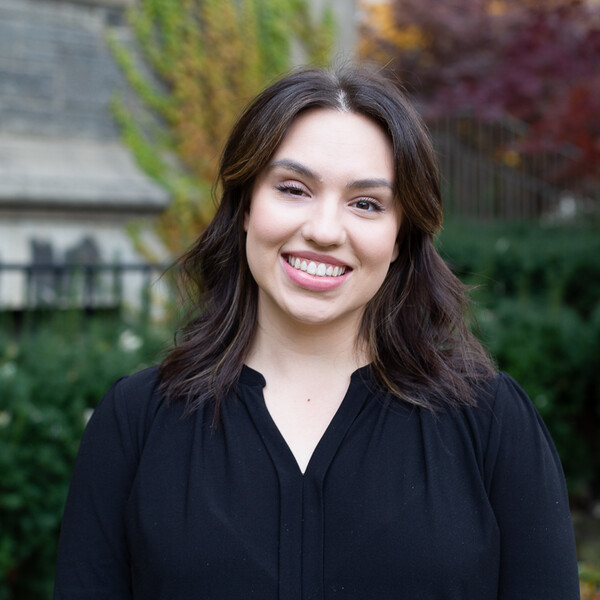
Kaila Jodoin, UTM
I have had the privilege of learning about occupational therapy from a young age as my mom has been an occupational therapist at my hometown hospital for over 30 years. I was inspired by her work growing up and the meaningful impact she has on her clients, so when it came to choosing my own career, becoming an occupational therapist was an easy choice to make.
During the program, I have been able to work with amazing peers, many of whom I now call my closest friends. I will never forget the many hours spent working with my study group members throughout the program. These experiences have helped me to grow into the clinician I am today.
The program, alongside Northern Ontario School of Medicine University, supported me in completing three fieldwork placements in my hometown in Northern Ontario. These opportunities allowed me to build connections in my home community and have led to my current job at my local hospital.
My final fieldwork placement was a student-initiated Leadership, Emerging, Advocacy and Program Development (LEAP) placement at my local Community Paramedicine Program. Here I was able to create a new permanent occupational therapy role with hopes to expand this to other community paramedicine programs across the province.
